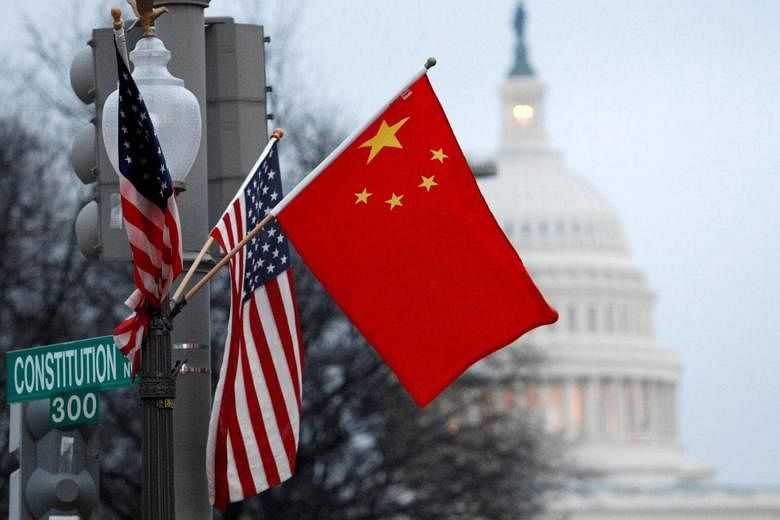HONG KONG (BLOOMBERG) - Talks between China and the US aimed at defusing trade tension between the two nations are at risk amid fresh threats from the White House of tariffs on US$200 billion of Chinese imports, the Wall Street Journal reported.
Beijing is considering declining the offer of talks led by US Treasury Secretary Steven Mnuchin, the Journal reported, citing officials with knowledge of the discussions, as it isn't prepared to negotiate with a "gun pointed to its head".
Officials are also considering potential retaliation steps, the report said.
President Donald Trump instructed aides on Thursday to proceed with the additional tariffs on Chinese products despite his Treasury secretary's attempt to restart talks with Beijing to resolve the trade war, according to four people familiar with the matter.
An announcement of the new round of tariffs has been delayed as the administration considers revisions based on concerns raised in public comments, the people said. Trump may be running low on products he can target without significant backlash from major US companies and consumers, two of the people said.
'US Offensives'
It's nothing new for the US administration to try to escalate tensions so as to exploit more gains at the negotiation table and China "will not just play defense" against the backdrop of "successive US offensives in the trade war," the Global Times, a tabloid run by the official People's Daily, said in an editorial late Sunday.
Some Chinese officials advising the leadership are proposing to step up the trade fight a notch by restricting China's sales of materials, equipment and other parts key to US manufacturers' supply chains, the Wall Street Journal report said. Such restrictions could even apply to Apple Inc.'s iPhones, which are assembled in the mainland, the report said.
While Mr Trump was willing to accept Mr. Mnuchin's efforts to restart discussions with President Xi Jinping's top economic adviser, Liu He, he wanted to make it clear he felt he was doing so at China's request, according to people familiar with administration deliberations, the newspaper said.
Those discussions have faced opposition from some of Mr Trump's more hawkish advisers, such as White House trade official Peter Navarro, the report said.
Upper Hand
Before his meeting on Thursday, which didn't appear on his public calendar, Trump boasted on Twitter that he has the upper hand in the trade feud with Beijing and feels "no pressure" to resolve the dispute. Trump was asked during the meeting whether he was concerned about the impact of the new tariffs on negotiations with China. He responded that he wasn't, two of the people said.
The new round of tariffs would be in addition those on US$50 billion of Chinese goods that already face a 25 per cent duty. The Chinese have retaliated with tariffs on an equivalent amount of US exports, and have promised to retaliate against future rounds of US duties. Trump has threatened a third tranche of tariffs on another US$267 billion of Chinese imports, which would mean levying duties on nearly everything China exports to the US.
Trump said at the time those tariffs were "ready to go on short notice," but the administration hasn't yet published a list for public comment.
It has become tricky to find additional products for duties that won't more obviously impact American consumers, according to two people. There was no decision made during Thursday's meeting regarding when to issue the US$267 billion round.
Efforts to end the trade dispute have fizzled so far. Officials from both countries have met four times for formal talks, most recently in August, when Treasury's undersecretary for international affairs, David Malpass, led discussions in Washington with Chinese Vice Minister Wang Shouwen.
The White House has sought to pressure Beijing to reduce its trade surplus with America and protect intellectual property rights of US companies, which it says are abused in China.

